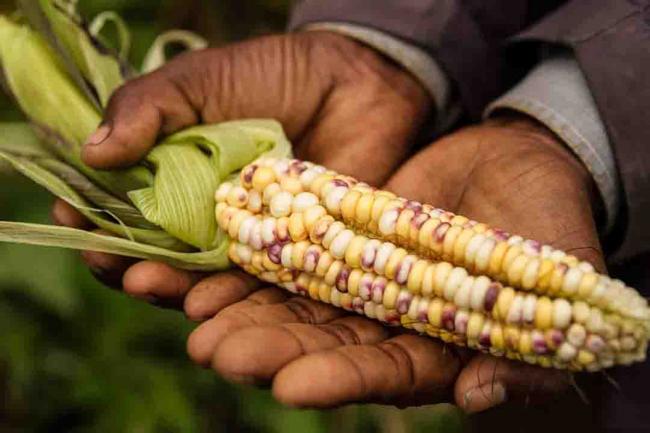The second day of the virtual consultations on Innovating Climate Change Adaptation through Agroecology featured two breakout groups which heard presentations on local implementation experiences.
In opening remarks, Alexander Müller, Managing Director, TMG Research, highlighted the aim of the consultation is to present its results to a broader audience, specifically from the climate change adaptation community.
The first breakout group discussed examples of how agroecology and water management contribute to transformation at the landscape scale. Participants exchanged views on how experiences from the field can inform the further development of the key messages that will form the output of the consultations. Discussions inter alia highlighted the need to: better reflect that agroecology is key for future-proofing food systems and for staying within planetary boundaries; and focus on collective participatory management as a means to adapt to climate change. To level the playing field for agroecology, participants emphasized the need to internalize negative externalities and take into account the "true costs" of conventional farming.
In the second group, participants discussed three examples from local initiatives in India, Tanzania, and the Philippines. Discussions inter alia pertained to: the role of women’s collectives in strengthening social capital and fostering upscaling of agroecological practices; and the promotion of market-oriented production for improved livelihoods. Participants shared that “many farmers have grown tired of problems with conventional agriculture,” pointing to high costs of nutrients and pesticides and to a lack of control over seeds. They noted that increases in farmers’ net incomes and reduced watering needs contribute to the appeal of agroecological practices.
In closing remarks, Alexander Müller said discussions highlighted significant commonalities between initiatives implemented in different agroecological zones around the world, especially regarding the importance of strengthening social capital and adapting technologies to local needs.
Jes Weigelt, TMG Research, reflecting on group discussions, emphasized the importance of broadening alliances between the agroecology community and stakeholders working on ecosystem-based adaptation, as well as exploring climate-nutrition linkages. He underscored enabling environments as critical and local governments’ capacity constraints as a key challenge to overcome.






